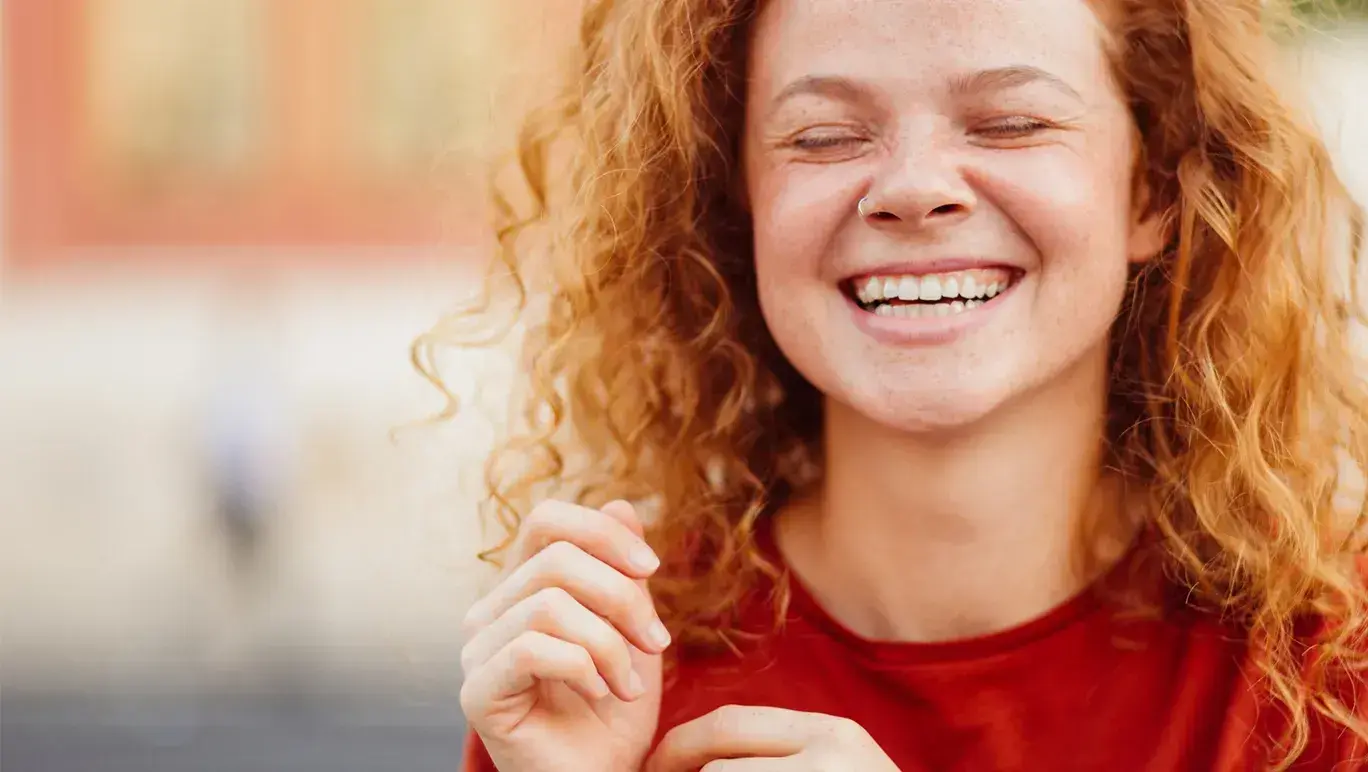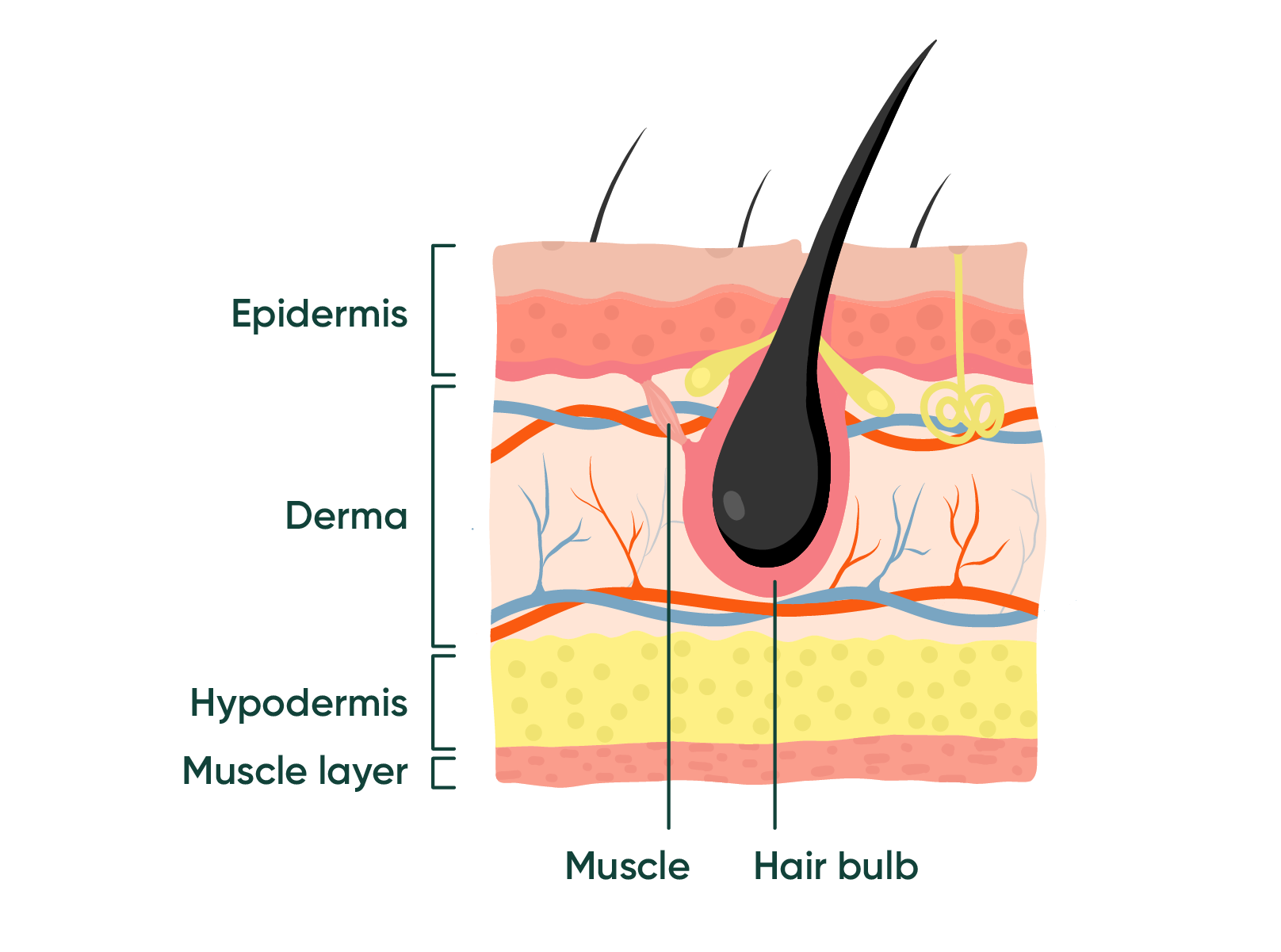Medicinal and Natural remedies for Hair Growth

Key points:
- Minoxidil is a common medication designed to help regrow hair, and has gained popularity lately.
- Medications containing Minoxidil are generally considered safe; like any medication, they have potential side effects.
- Products containing Minoxidil may be an effective solution for some
- There are other natural approaches that may complement or support healthy hair growth. These include, hair-supporting nutrients from food, herbal medicine and scalp massage.
Hair anatomy 101
Did you know hair loss can commonly affect both men and women?
Before we dive into how medication and natural remedies might help hair growth, let’s talk about the basics of hair! In order to learn how to take care of your hair, it makes sense to know how it grows.
What are hair follicles?
Did you know most individuals have around five million hair follicles?
The hair follicle is the root of the hair which sits underneath the skin’s surface, and inside the follicle is the hair bulb where growth happens. Blood flow to the small vessels at the bulb deliver oxygen and nutrients to promote healthy growth. The hair strand is the visible part of hair that sits above the skin and is made up of keratin. Keratin is a fibrous protein.

Hair and skin anatomy diagram
Factors that influence healthy hair and hair growth
A balanced diet rich in essential nutrients can contribute to overall hair health. Foods high in vitamins and minerals, such as iron, zinc, biotin, selenium, omega 3 fatty acids and vitamin E, are particularly important for supporting hair growth.
Foods rich in these vitamins include eggs, oysters and seafood, sunflower seeds, lean meats, almonds, brazil nuts and pumpkin.
Protein is also an important macro nutrient vital for healthy hair. Hair is mostly made up of keratin, a combination of amino acid proteins, so eating enough protein in the diet is important to maintain hair growth as well as encourage new growth.
Medication for hair loss
Among the various treatments available, Minoxidil is a medication that has gained popularity as a topical product designed to promote hair regrowth. In this article, we'll explore what Minoxidil is and how it works.
What is Minoxidil?
Minoxidil is a vasodilator, meaning it widens blood vessels, promoting increased blood flow. While the exact mechanism behind its effectiveness in promoting hair growth is not fully understood, it’s believed to enhance blood flow to hair follicles, thereby stimulating hair regrowth.
How does Minoxidil Work?
There are two key phases of hair growth:
- Anagen is the active phase when hair growth is happening
- Tolgen is the resting phase where hair growth has stopped. On average, 10-15% of all hairs on the body are in the telogen phase at any given time.
When applied topically to the scalp, minoxidil may stimulate hair follicles in their growth phase (anagen phase) and increase the size of the hair follicles, promoting thicker hair strands. They may also extend the duration of the anagen phase, delaying the transition to the resting phase (telogen phase). Additionally, minoxidil may enhance the production of proteins that support hair growth.
Adverse Effects of Minoxidil
These products are generally considered safe, however like any medication, they may have potential side effects. Common side effects include irritation or redness on the scalp, and in some cases, individuals may experience increased hair shedding during the first few weeks of use. In rare cases, allergic reactions can occur. It's crucial to follow the recommended application guidelines and consult with a healthcare professional if any adverse effects persist or worsen.
Natural Solutions for Hair Growth
There are also natural approaches that may complement or support healthy hair growth. It's important to note that individual responses to these natural remedies may vary.
Collagen
Collagen, which is made up of a specific combination of amino acids, is popular in hair growth supplements and, so far, animal studies have shown some positive effects of collagen and hair growth, so this space will be one to watch out for in future!
Herbal Medicine
Saw palmetto
Some studies suggest that saw palmetto, a herbal remedy, may help inhibit the activity of the hormone dihydrotestosterone (DHT), which is associated with hair loss.
Centella asiatica
Also known as Gotu kola, may help to promote blood circulation to the scalp and stimulate the growth of hair follicle cells.
Panax ginseng
Although more research is needed in humans, Panax ginseng, also known as Korean ginseng, has been traditionally used for hair health in many cultures. Some preliminary studies show Panax ginseng may support hair growth through its ability to slow hair cell death.
Scalp Massage
Regular scalp massages can stimulate blood flow to the hair follicles, promoting a healthier environment for hair growth. You can use a brush, your hands, (or someone else's) to give your hair and scalp that nourishing treatment.
Final wrap
There are a number of ways to support hair growth. Products containing Minoxidil are well-known options for individuals seeking to address hair loss. However, natural remedies, including a nutrient-rich diet, and herbal remedies, may also play a role in supporting overall hair health. It is important to consult with a healthcare professional before commencing any treatments for hair growth to ensure the appropriate safe care for individual circumstances.
Related reads:
- What is the no poo method for hair?
- Top 10 foods that are good for your skin, hair and nails
- Want to luscious-ify your locks? Consider eating these happy hair foods
Reviewed by the Healthylife health experts March 2024.
This article is for informational purposes only and does not provide medical advice, diagnosis, or treatment. Any information published on this website or by this brand is not intended as a substitute for medical advice. If you have any concerns or questions about your health you should consult with a health professional.
